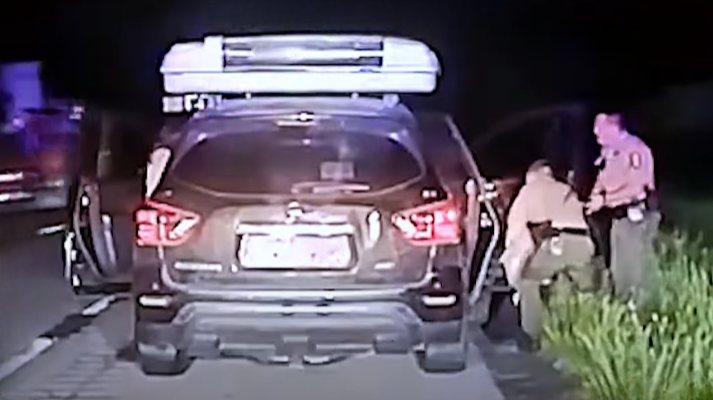Senator Adam Schiff (D-CA) is currently under increasing scrutiny following recent disclosures from declassified FBI documents and whistleblower testimony alleging that he authorized the unauthorized release of classified materials while serving as chairman of the House Intelligence Committee.
If these accusations are verified, Schiff could face significant legal and political repercussions, including fines, removal from office, or even imprisonment, according to former federal legal experts.
Central Allegations Driving the Controversy
The controversy originates from FBI interview summaries and whistleblower reports dating back to 2017. The whistleblower—an experienced Democratic intelligence staff member—alleges that Schiff directed House Intelligence Committee personnel to leak classified information to select journalists during the peak of the Trump–Russia investigation.
According to the whistleblower, the motive was to politically undermine then-President Donald Trump.
The documents describe a staff meeting where Schiff reportedly declared that the team would release classified information damaging to President Donald J. Trump. He allegedly asserted that the leaked material would be used to charge Trump and bolster the Democrats’ public case against him.
When the whistleblower expressed concerns that such actions might be “unethical and potentially treasonous,” others reportedly assured him that “the leaks would be undetectable.”
Allegations of Retaliation and FBI Inaction
The whistleblower claims that his objections resulted not in an internal probe but in retaliation and dismissal.
He submitted a detailed complaint to the FBI’s Washington field office, which he says went uninvestigated.
In 2023, the whistleblower contacted the FBI’s St. Louis office, providing further evidence, but once again the claims were reportedly disregarded.
He contends this reflects a “deliberate effort to shield politically influential figures from accountability.”
Possible Legal Consequences
Former U.S. Attorney Brett Tolman explained that, if substantiated, the charges could carry harsh penalties. Federal law imposes up to 10 years imprisonment per offense for knowingly leaking classified national security information.
“Depending on the number of offenses charged, fines can total $250,000 per count, and prison terms can be served consecutively,” Tolman said.
Legal experts suggest Schiff might also face charges related to abuse of office, obstruction, or conspiracy depending on what investigators uncover.
While no official investigation has been confirmed, insiders at the Department of Justice (DOJ) indicate that newly declassified documents could prompt reconsideration of the matter.
Schiff’s Alleged Motivations and Political Backdrop
The whistleblower also claims Schiff believed he was promised a CIA Director position if Hillary Clinton had won the 2016 election—an assertion that might have influenced his later conduct.
Following Clinton’s loss, Schiff became a prominent figure in promoting the Trump–Russia collusion narrative, frequently appearing on television discussing intelligence findings.
Critics say Schiff blurred the line between legitimate oversight and political theatrics, while supporters maintain his actions were appropriate congressional oversight.
Renewed Demands for Accountability
These revelations have reignited Republican demands for an investigation into Schiff’s actions.
Representative Jim Jordan (R-OH), chair of the House Judiciary Committee, has accused Schiff of “weaponizing classified briefings for political ends” and is reportedly reviewing the newly released documents for possible ethics or criminal referrals.
“This isn’t about politics—it’s about restoring public trust,” Jordan said. “Using classified information to manipulate public opinion or target opponents is a serious abuse of power.”
The House Oversight Committee has also requested access to FBI interview records to corroborate the whistleblower’s claims.
Connections to Media and Intelligence Officials
The whistleblower alleges that many leaks were funneled through Representative Eric Swalwell (D-CA), a close ally of Schiff and fellow Intelligence Committee member.
Swalwell has denied these allegations, calling them “politically motivated fabrications.”
Investigative journalist Paul Sperry reported that Schiff’s office maintained close ties with certain Washington Post reporters, especially Ellen Nakashima, who published numerous national security stories during the Trump administration.
While there is no direct proof of coordination, Sperry noted that the timing of some stories “closely matched” internal briefings led by Schiff.
Criticism of FBI’s Response
The FBI’s apparent reluctance to investigate has drawn bipartisan criticism.
“Leaks of classified information are crimes, no matter who does it,” said former CIA analyst Robert Baer. “If true, the bureau’s failure to act shows a breakdown of accountability at the highest levels.”
Former intelligence officials have pointed to a persistent pattern of selective enforcement, where whistleblowers face punishment but politically connected figures avoid scrutiny.
Schiff’s Response
Schiff’s office has not issued a detailed response to the recent revelations but has previously dismissed similar accusations as “partisan attacks.”
In 2021, Schiff stated, “My record speaks for itself. I have always conducted oversight responsibly, within the law, and with respect for national security.”
Critics argue that Schiff’s public handling of classified intelligence, including comments on the discredited Steele dossier, undermined trust in congressional oversight.
A Critical Moment for Justice
This case represents a pivotal test for the DOJ amid pressure to enforce laws equally, regardless of political affiliation.
“If you leak classified material, there should be consequences—no exceptions,” Tolman emphasized. “The key question is whether prosecutors will act.”
Currently, there is no announced indictment or DOJ probe, but the FBI interview releases may prompt renewed congressional scrutiny and possible DOJ review.
Wider Implications
Beyond immediate legal and political impacts, the case revives broader discussions about secrecy, accountability, and partisanship in government.
“Leaks have long been tools in political battles,” said national security expert Dr. Emily Carter. “But when elected officials authorize classified leaks, it threatens democratic oversight.”
As Congress and the FBI face intensified scrutiny, the ongoing conflict over truth, transparency, and power in Washington remains unresolved.




